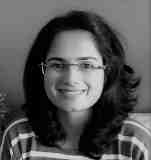Careers outside academia: How Shingo Ebata went from studying cosmochemistry to shaping national research policies
Careers outside academia
Graduate students, early career researchers, or even established researchers may sometimes be unaware of opportunities other than the traditional path of academic research. This series aims to introduce them to exciting and rewarding careers that can be pursued outside academia. We bring you interviews with experts from diverse backgrounds who share their experiences from their non-academic journeys and tips on how to transition to these paths.

Shingo Ebata has a PhD in cosmochemistry and serves as Senior Aide to the President and Vice President (Provost), Strategic Management Office, Tokyo Institute of Technology. He is also a Senior Science and Technology Policy Fellow at the Science, Technology, and Innovation Secretariat, and a director of Research Infrastructure Council. He specializes in university management, research infrastructure policy, space chemistry, and analytical chemistry. He has been a member of the Research and Development Infrastructure Subcommittee of the Council for Science and Technology Policy under the Ministry of Education, Culture, Sports, Science and Technology (MEXT) since FY2019, and he has served as the chairman of a study group on the establishment of guidelines for the sharing research equipment and facilities at universities since FY2021.
The interview responses were originally provided in Japanese and have been translated into English.
Could you tell us a little bit about your professional journey so far and the type of work you have done outside the typical academic career path?
I received my Ph.D. in cosmochemistry from Hokkaido University in March 2009. After getting my Ph.D., I worked as a postdoctoral researcher and assistant professor, analyzing meteorites by using state-of-the-art instruments (e.g., an isotope microscope at Hokkaido University) and was involved in the development of cutting-edge analytical instruments (an isotope nanoscope: laser ionization mass spectrometer [LIMAS] at Osaka University, Hokkaido University, and JEOL Ltd.), which can analyze isotopes at the nanometer level. I was also involved in the national robotic spacecraft missions Hayabusa and Hayabusa2 as a member of the sample-analysis team.
In January 2013, I became the youngest founding member of the URA Station, an organization that plans and proposes research strategies for Hokkaido University. I planned and managed research projects and industry-academia collaboration projects for Hokkaido University. I also established the Global Facility Center, which manages research infrastructure as part of facility management for Hokkaido University. As the deputy director of the center, I made recommendations related to research infrastructure and science and technology policies.
In addition, I established the Integrated Investor Relations Office, which is a model for evidence-based management at national universities, and as assistant director, I introduced evidence-based planning and formulation of strategies to ensure they are carried out effectively. I established the new position of University Research Administrator and have been working toward making this position a model for human-resource management for all universities in Japan in the future.
In May 2018, I also started working at the Science, Technology, and Innovation Secretariat of the Cabinet Office. As a Senior Science and Technology Policy Fellow, I am involved in the planning and formulation of important national policies, including the 6th Science, Technology and Innovation Policy.
I joined Tokyo Institute of Technology as a professor in April 2019 (the youngest at Tokyo Tech at the time). As a special assistant to the general director and vice president (provost) of Tokyo Tech, I am responsible for planning and formulating management strategies. There are almost no young faculty members in the country who are involved in the management of Tokyo Tech, and I strive to establish a robust model for the management of human resources at national universities across Japan.
My career path to date has been unique in the long history of national universities, and it is said to inspire a trend of new careers in the field of future university reforms.
What helped you make this transition? Did you face any challenges?
I think my ability to take on challenges with a positive attitude was useful. This was cultivated during my time as a graduate student, when I was trained as a researcher, through having to apply logical thinking, working on the process of conducting research, acquiring results, making new discoveries, and enjoying the changes in my work environment.
I have faced various difficulties until now. I went to the graduate school of Tokyo Institute of Technology for my master’s degree, and in the middle of my master’s course (2005), my laboratory was transferred to be under the aegis of Hokkaido University, which forced me to submit the results of my master’s thesis by the summer of the second year of my master’s program. I was responsible for the installation of a new electron microscope and made adjustments to bring out the best performance of the equipment. I spent six months working tirelessly, sleeping less than three hours on average every day, when doing these tasks, all the while also starting a new life in a new place, Hokkaido, and writing my master’s thesis.
My Ph.D. was a period of training to be a researcher, and I was prepared to quit my program if I did not complete it within three years. So, I ran my experiments diligently, wrote prolifically, and presented my work at as many conferences as possible. For a Ph.D. to be awarded, you need to defend your thesis, and I wanted to support the rationale underlying my work by accurately answering questions from various angles and writing a thesis that would be recognized by leading researchers in my field in Japan and abroad. What I learned through this experience was very important for my career later.
When I was developing cutting-edge research equipment as an assistant professor, I faced a series of difficulties. Since I was developing a new product from scratch, I had to adjust all the parameters myself and make decisions on my own. During the experiments, the integrated circuits on electronic circuit boards caught fire, pumps that were used to maintain an ultra-high vacuum did not work as intended, and state-of-the-art equipment such as femtosecond lasers stopped oscillating. Every day, I sharpened and fully utilized my five senses, and I felt my sixth sense being further developed.
When I got involved in the management of a university, my world expanded infinitely to show me what I had not seen in my previous years as a researcher. I felt as if I had been reborn and had been living my life confined to one narrow field of space research until then. I was able to make use of my knowledge and communication skills as a researcher and enjoy discussions with various stakeholders. I felt that I was spending my days in such a fun and fulfilling way that I did not feel as if the difficulties were difficulties at all.
Universities in Japan are currently under pressure to reform because of the decline in research capabilities. Although we understand what the society demands, many of the systems in place are not yet in a position to respond to these demands. This is the biggest challenge I face today, and I work every day toward ensuring that systemic reforms will be implemented and the benefits from these will be sustained through my children’s and grandchildren’s generations.
What types of opportunities can PhD students and researchers explore in the non-academic domain you are currently working in?
I was able to meet and communicate with a wide variety of people during my time as a doctoral student and young researcher. I was connected with not only faculty members, seniors, colleagues, and juniors in my laboratory, but also people from outside my laboratory within Hokkaido University (other laboratories, academic societies, departments, baseball clubs, engineers, and administrative staff). I also connected with people from other universities, private companies, public organizations—such as the Ministry of Education, Culture, Sports, Science and Technology—and peers overseas. I was able to expand my network worldwide. I believe that this was a great advantage that I could not have gained by simply doing research.
I am sure that the current doctoral students and researchers are going through tough times because of the difficult situation that Japan is facing. They are too busy and pressed for time. I would encourage them to meet a diverse group of people, across ages, career stages, and genders. If they work on their research steadily and communicate well with their advisors so that they can get such opportunities, I am sure that new career paths will open up for them.
Becoming a researcher in academia is not everything. I believe that doctoral candidates have the ability to build their own original careers that suit them.
I hope that you will make effective use of all opportunities available to you and open up new paths that will allow you to make the most of what you are good at.
On the basis of your experience, what would you say are the 3–5 most important points a PhD student or researcher should consider when exploring non-academic career paths?
This has already been covered in the previous answers, but to reiterate,
- Have confidence in your training as a researcher. What you have learnt during your Ph.D. is very useful for non-research careers as well. You have faced many difficulties, but you have overcome them and have been able to carry out your research. Try to capitalize on your transferable skills, without being restricted by your area of specialization. You will find that you have acquired versatile skills. I recommend developing interest in many things and to think seriously about them. The same as the spirit of inquiry that drives you as a researcher will help you think of new career paths.
- Try without fear of failure. Fear of failure can deter your thinking and progress. As Ph.D. students, your thinking about your work may sometimes be based on only what you have learnt through your course material and existing literature. Is everything in textbooks correct? Are all the theories out there really plausible? What new insights can you draw from your own experiments? Question existing knowledge, try new ways of answering old questions, learn from what your own research shows. This approach is very useful when you are faced with any types of difficulties, and if you try everything without fear and don’t give up before trying, you will find that a completely different world opens up to you.
Developing this kind of attitude requires not only mental strength but also physical well-being. Do as much as you can while taking care to keep both your mind and body in good shape.
- Communicate with a wide variety of people. Without human connections, you will not be able to carve out a new career. Even some super-genius researchers are supported by many people in their lives. You are a part of that world, and if I may say so as a cosmochemist, you are a part of this universe. If you want to expand your possibilities and uncover hidden abilities, try to communicate with a wide variety of people. You may have some bad experiences and may be hurt by them. But if you can see even that as an experience that will help you grow, then you are on a good path. You will have friends to help you do so. I have friends who have helped me and still support me. Some I haven’t seen in decades, and some I will never see again. I am still grateful for all the people I have met. Gratitude facilitates communication. I would like to suggest expressing gratitude on a daily basis, rather than think about regrets or bad experiences.
Comments
You're looking to give wings to your academic career and publication journey. We like that!
Why don't we give you complete access! Create a free account and get unlimited access to all resources & a vibrant researcher community.

Subscribe to Career Growth







































